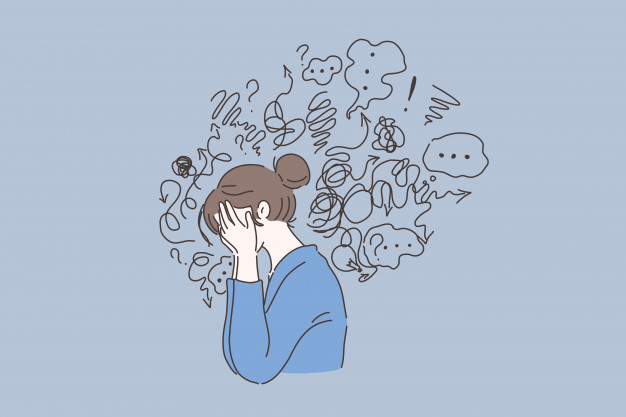Stress can be extremely damaging in a variety of ways. When taken too far, it can indeed kill.
It can negatively impact relationships. Relationships with your significant other do tend to suffer, as the other person not only maybe getting less time from you but also less quality time too. Relationships with family members can also take a turn for the worst, as less quality time is spent together to maintain those bonds.
Physical health is another perhaps more obvious area that stress causes problems. Hormonal health tends to suffer, recovery from exercise goes down, and a good night’s sleep becomes more difficult by the day.
Cortisol levels in the blood are one of the key indicators of stress levels in the body, and when these rise to levels of excess, the above problems tend to arise.
There are many ways to relieve stress.
But here are the 4 most important strategies in my opinion, that will help you to keep cortisol levels low, even if you’ve been struggling with them for a long time.
1. Sleep

Sleep (ideally organic) is number one for a reason.
It’s the ultimate cure for high cortisol levels, and one of the most damaging things you can do is fall into the ‘grind/hustle culture’, which will only exacerbate your stress levels further. One study found that sleep loss resulted in a 37-45% rise in cortisol levels the next day.
“We conclude that even partial acute sleep loss delays the recovery of the HPA from early morning circadian stimulation and is thus likely to involve an alteration in negative glucocorticoid feedback regulation.”
So next time you’re tempted to stay up to binge-watch Netflix or check emails, you may want to keep the above in mind – it’s only going to exacerbate the problem.
Time management may also be something to seriously look into if you’re suffering from work-related stress, and feel the need to be checking emails every 24 hours.
The next one is a big one:
2. Vitamins

Getting the right vitamins and minerals is absolutely crucial because they tend to get depleted when cortisol levels are high, which leads to further problems.
While your diet should play an important role here, it’s understandable that nobody’s diet is perfect 100% of the time, so supplements tend to become really helpful and ‘fill the gaps. Furthermore, in a lot of countries, food quality is not what it used to be, with more toxins and fewer micronutrients than in past times. In these instances, vitamins can be game-changing. Plus, they’re easy to take and extremely time-efficient.
Vitamin B6, B5 (pantothenic acid), and vitamin C often become depleted during stressful times, with chronic adrenal gland activity and cortisol secretion really eating into the reserves your body has (study).
All three of these nutrients play a critical role in the proper function of the adrenal gland (which is ultimately responsible for cortisol production) and the manufacturing of adrenal hormones.
Other potential minerals to look at maybe L Tyrosine, and L Theanine, both of which have been shown to support the adrenal glands and combating fatigue and anxiety symptoms.
Although it’s tempting to frantically rush about 24/7 when you’re feeling stressed, keep in mind the importance of these vitamins – having them in a ‘hard to forget’ place may also be a good idea too.
3. Herbs

Mankind has been using herbs for a variety of medical purposes since the dawn of human existence, and they’re still useful to this day.
If your boss is getting to be too much, or your workload is simply taxing your mind, herbs may offer you a very real and relaxing solution.
- Magnolia Bark

This has been used in ancient Chinese medicine, and with over 200 types of Magnolia trees available today, we have an abundance of this tree bark.
Magnolia Bark isn’t just a powerful stress-reliever, but it also serves as a powerful anti-oxidant due to the polyphenols – magnolol and honokiol, meaning there’s a real variety of health benefits you can receive from these herbs.
But in terms of reducing cortisol and stress levels, 500mg has been shown to significantly impact cortisol and improve mood simultaneously (study). This is a potent stress-reliever, particularly when you combine it with the next herb.
- Ashwagandha

Also known as ‘Withania somnifera’, this herb comes from India and Northern Africa and has been used for over 3,000 years as a natural remedy.
It’s classified as an adaptogen and is mainly used nowadays as a supplement t help people manage stress better.
Specifically, doses of 125mg-5g for 1-3 months have been shown to substantially reduce cortisol levels, by 11-32% (studies 1, 2, and 3). When you combine this with the other factors like sleep, vitamins, and magnolia, you’re on for a low-stress lifestyle.
4. Eliminating sugar

This one is something that affects more and more people in the western world each year.
Chronically high sugar consumption is a classic trigger of cortisol, with a lot of westerners triggering cortisol release around the clock, 24 hours per day, 7 days a week.
Furthermore, a high sugar intake is especially correlated to high cortisol in obese individuals. It seems that sugar will not cause stress problems in the immediate short-term, but when consumed in excess over many months and years, it becomes extremely problematic.
The easiest way to eliminate sugar (as my clients have found) is to simply replace it with different foods. Perhaps pasta or bread is a problem for you? Replace it with red lentil pasta or buckwheat. Perhaps sweets are a problem for you? Replace them with blueberries and raspberries.
These are far healthier alternatives that will provide you with micronutrients and anti-oxidants, and won’t contribute to a sky-high level of cortisol release.
Not only will quitting sugar help with stress levels, but it also tends to make you read more (due to fat loss and other physical benefits).
Summary
Stress is almost an expected part of the modern-day lifestyle, and people need to be aware of the potential solutions for them. Their family life, marriage, physical health, and mental health are all potentially at stake.
Through a combination of herbs, reduced sugar intake increased vitamin and mineral consumption, and enhanced sleep hygiene, I believe that most people can make an enormous difference in their cortisol and stress levels.

